Open Range Meets Open Mic at the National Cowboy Poetry Gathering
Every year, the world’s best cowboy poets gather in Elko, Nevada
Twenty years ago, California rancher John Dofflemyer and his bride took their vows surrounded by poets, musicians, storytellers—and cowboys. The setting was the National Cowboy Poetry Gathering, an event Dofflemyer had been attending since 1989. Surrounded by a sea of cowboy hats, the pair jumped over two brooms decorated with bouquets, starting a fresh life together before settling in for the rest of the festival in Elko, Nevada.
Now in its 32nd year, the gathering has blossomed from a small group of cowboy poets reciting on stage to a list of nearly 50 bards and musicians, plus artists, dancers, movie producers, scholars and audiences numbering in the thousands. The festival runs for one week each January at seven locations throughout Elko that host everything from poetry readings and open mics to evening dances and panel discussions, all focusing on life in the world of western ranching. There's no competition, no winners—just a group of cowboy poetry lovers sharing the art form in the best way they know how.
Cowboy poetry itself began on the frontier more than 150 years ago, Darcy Minter, communications director at the Western Folklife Center, tells Smithsonian.com. Cowboys would compose rhymes as they rode along, then sit by the campfire at night and share the poems with other riders. The oral tradition continued on in ranching communities and spread to families and groups of friends. A 1985 grant from the National Endowment for the Arts allowed the Western Folklife Center to put together the festival, and it’s grown every year since.
This particular poetry gathering is unique because it doesn’t focus outright on past lyrical classics. “We don’t do history programs because we’re about a living tradition,” Minter says. “But the history comes through in the stories people tell, and in the poetry and the music.”
Here, the focus is on modern cowboys and current cowboy poetry, highlighting the differences—and similarities—between ranchers and non-ranchers alike.
“In my poetry, I try to bridge that rural-urban chasm by demonstrating that we, as a culture, are human,” Dofflemyer says. “We’re not cold and uncaring, we’re not the spoilers of the range—all that bad press that we live with.”
The poetry recited at the National Cowboy Poetry Gathering is true to that human spirit, telling stories of what life is actually like on the ranch and in the cowboy world, regardless of location. “Most of our performers are working ranchers, so the things they write about are the things they deal with every day out on the ranch,” Minter says. “They might be writing about horses, or they might be riding four-wheelers. It gives them a forum to help people understand what they do, who they are, what they care about.”
The festival draws cowboys from all over the world—in the past, ranchers have come from as far away as Europe, South America and Mongolia. Minter says this is one of the best things about the festival; it gives everyone a chance to see “we’re really not all that different” no matter where someone is based or even what gender they are. And women participate, too, though Minter says they prefer to be called cowboys instead of cowgirls because “cowgirl has a different connotation.”
Dofflemyer, for his part, isn’t in love with the cowboy moniker. “I’d like to think of myself, instead of a cowboy, as a cowman,” he says. “We’re raising cattle. It’s all about the cows, whereas a cowboy is kind of footloose. I like to think of myself as a rancher poet.” At the gathering, which he refers to as a family reunion, he reunites with the community he loves. But the poetry itself speaks to common cowboy themes that will feel familiar to anyone who’s ever ridden a horse—or dreamed of the freedom of the open range.
We know the sound, feel it
pound our flesh, reverberate
in our skulls, draw sinew tightto hold on—to the moment
fleeting, bucking, kicking loose
the last of common sense.No ordinary ride in the park
upon watered lawns spaced
between pampered shade trees,we recognize the scent
of rain on sudden gusts,
feel skin shrink, follicles liftus up, and the sweet cud
swirling above bovine beds,
flat mats of grass awakening.Not quite wild, we are captive
in a maze of weathered hills,
fractured rock and familiesof oaks where shadows slip
and voices stalk—whisper one
more metaphor upon our lips.
This year's National Cowboy Poetry Gathering runs through Saturday, January 30, 2016.
Planning Your Next Trip?
Explore great travel deals
Smithsonian magazine participates in affiliate link advertising programs. If you purchase an item through these links, we receive a commission.
/https://tf-cmsv2-smithsonianmag-media.s3.amazonaws.com/accounts/headshot/JenniferBillock.png)
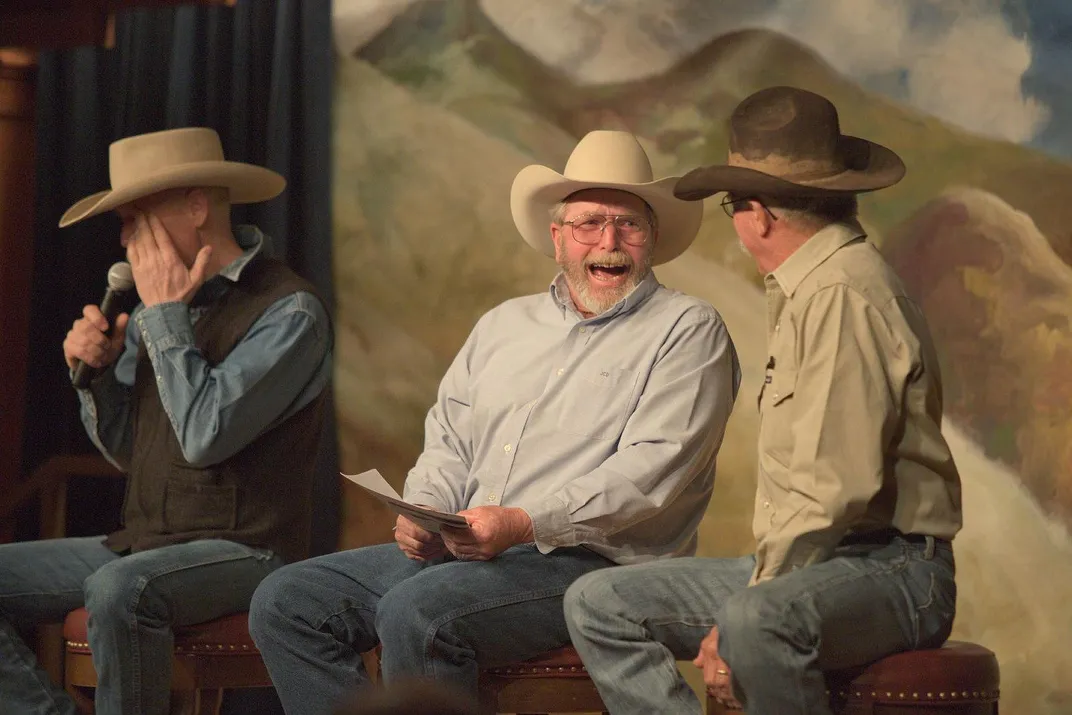
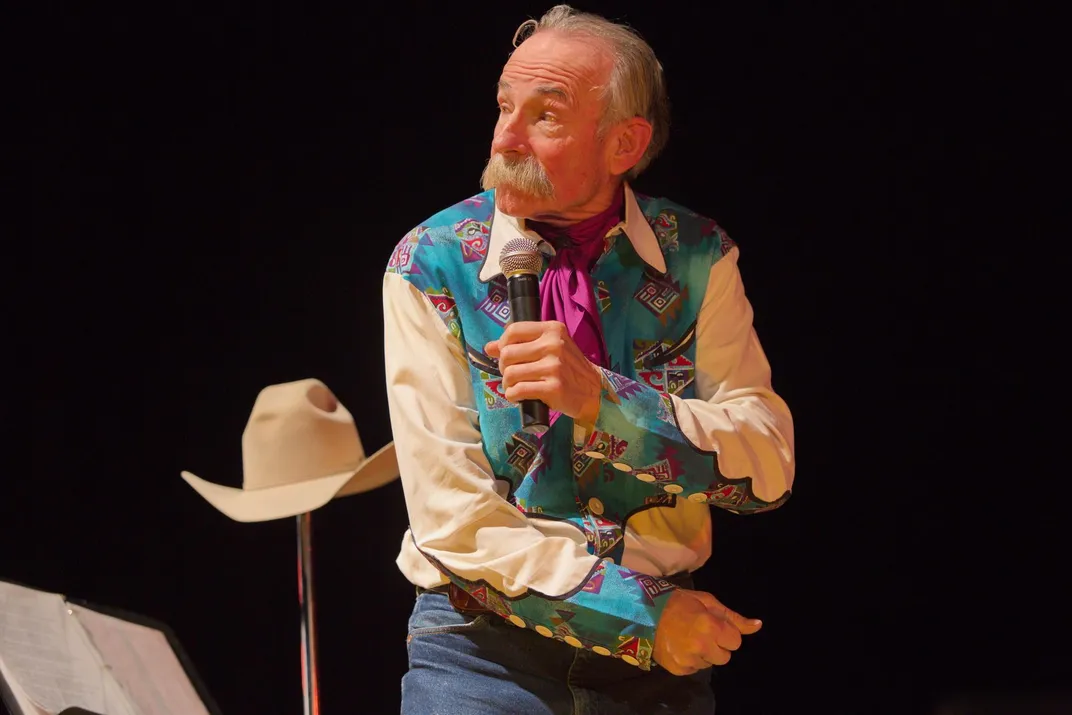
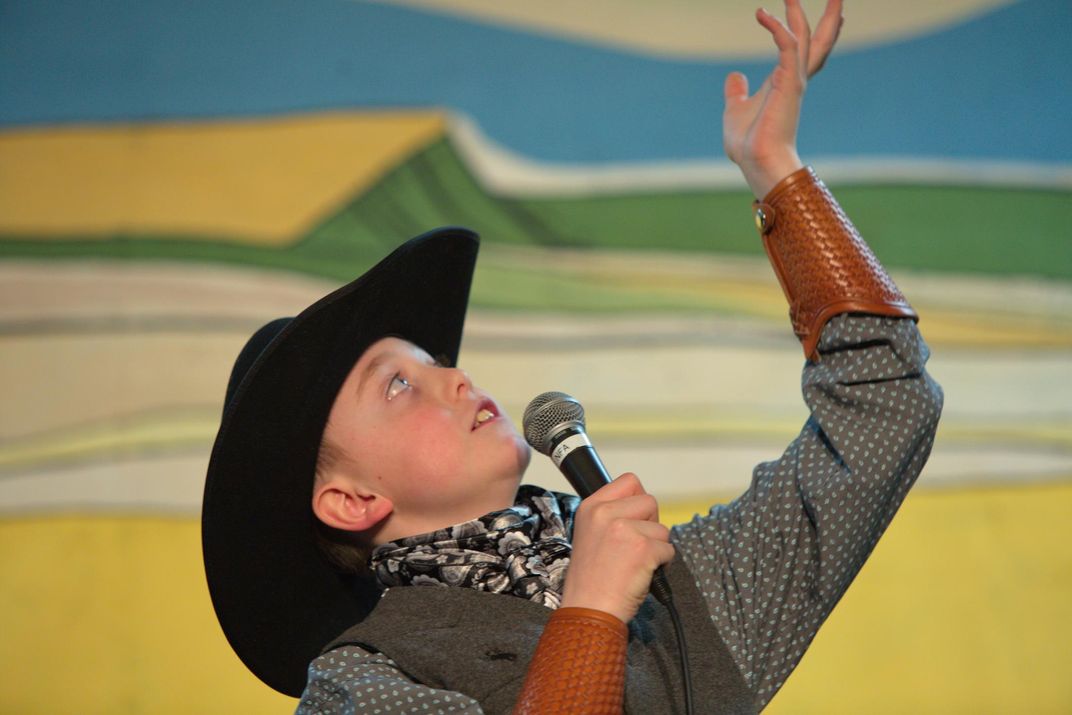
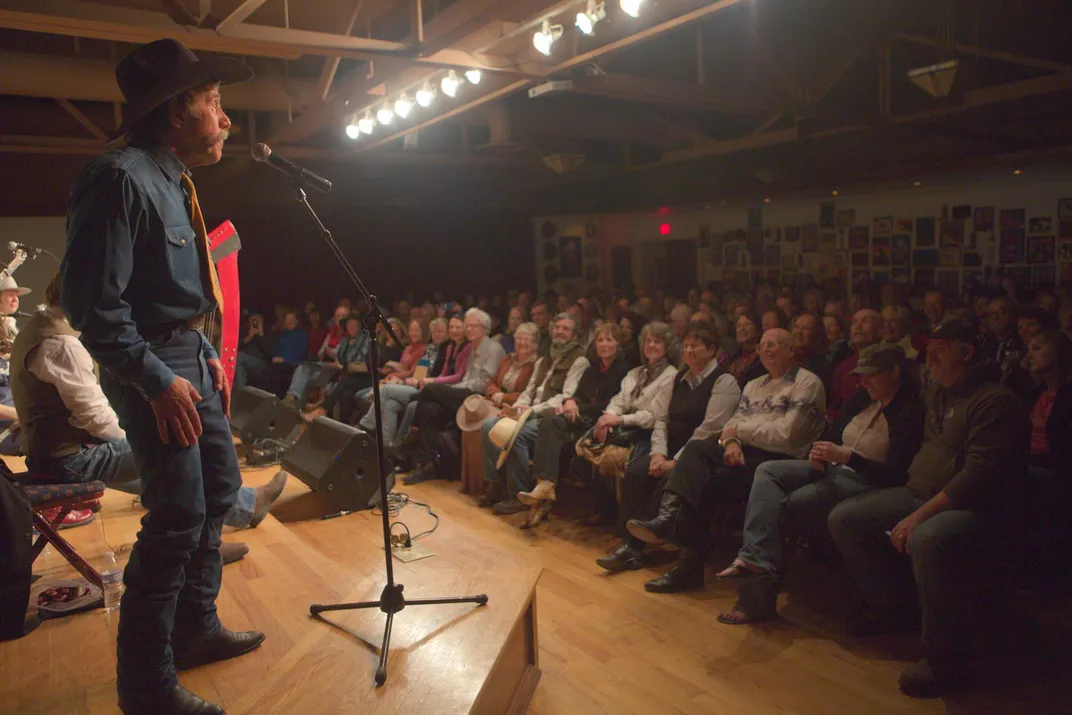
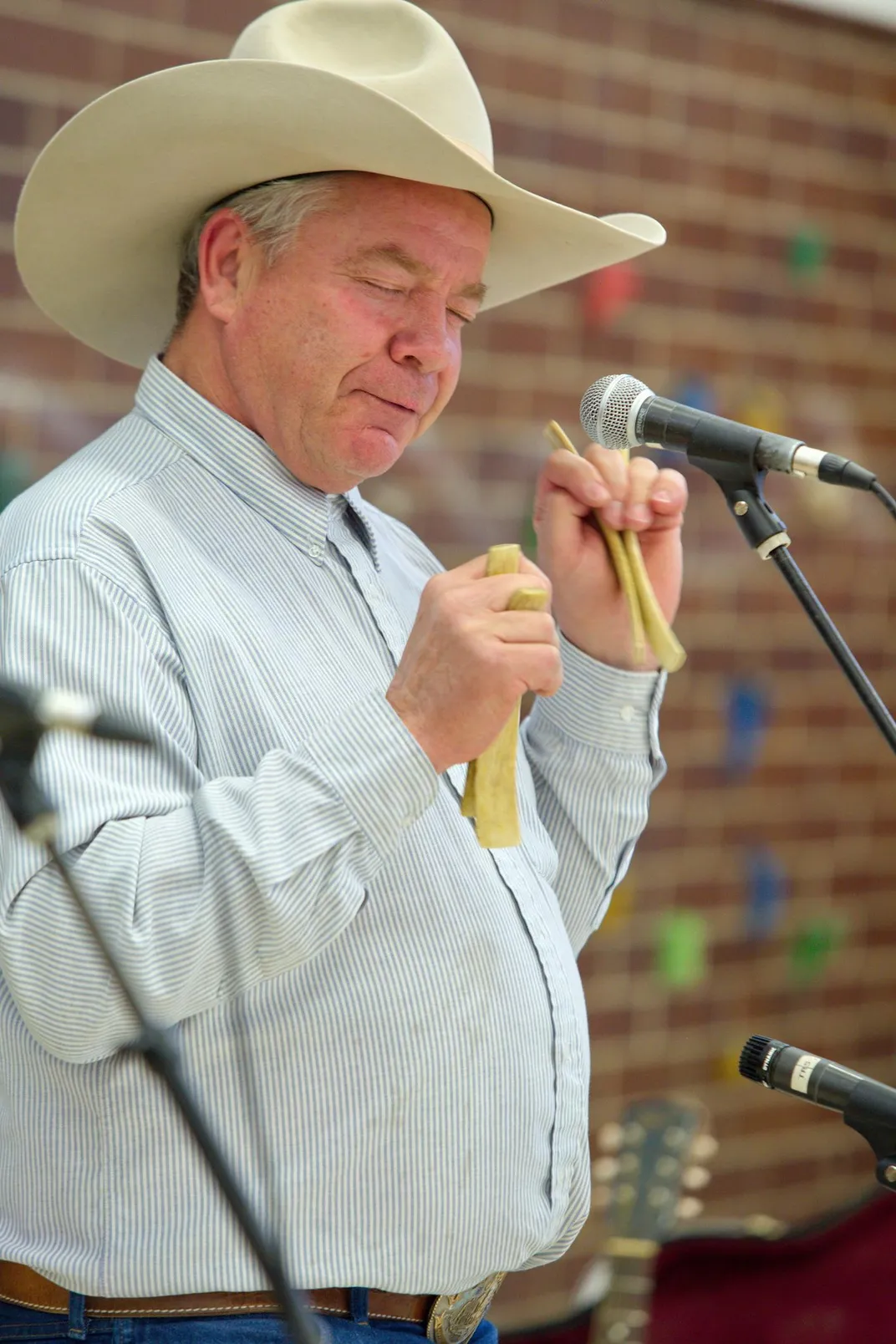
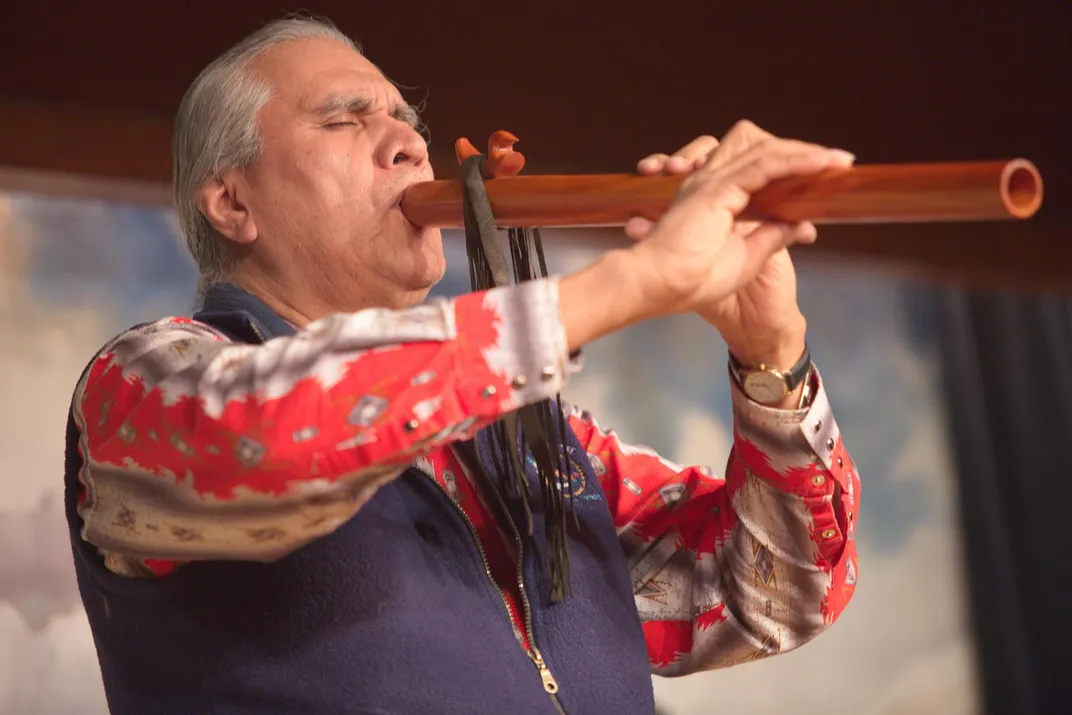
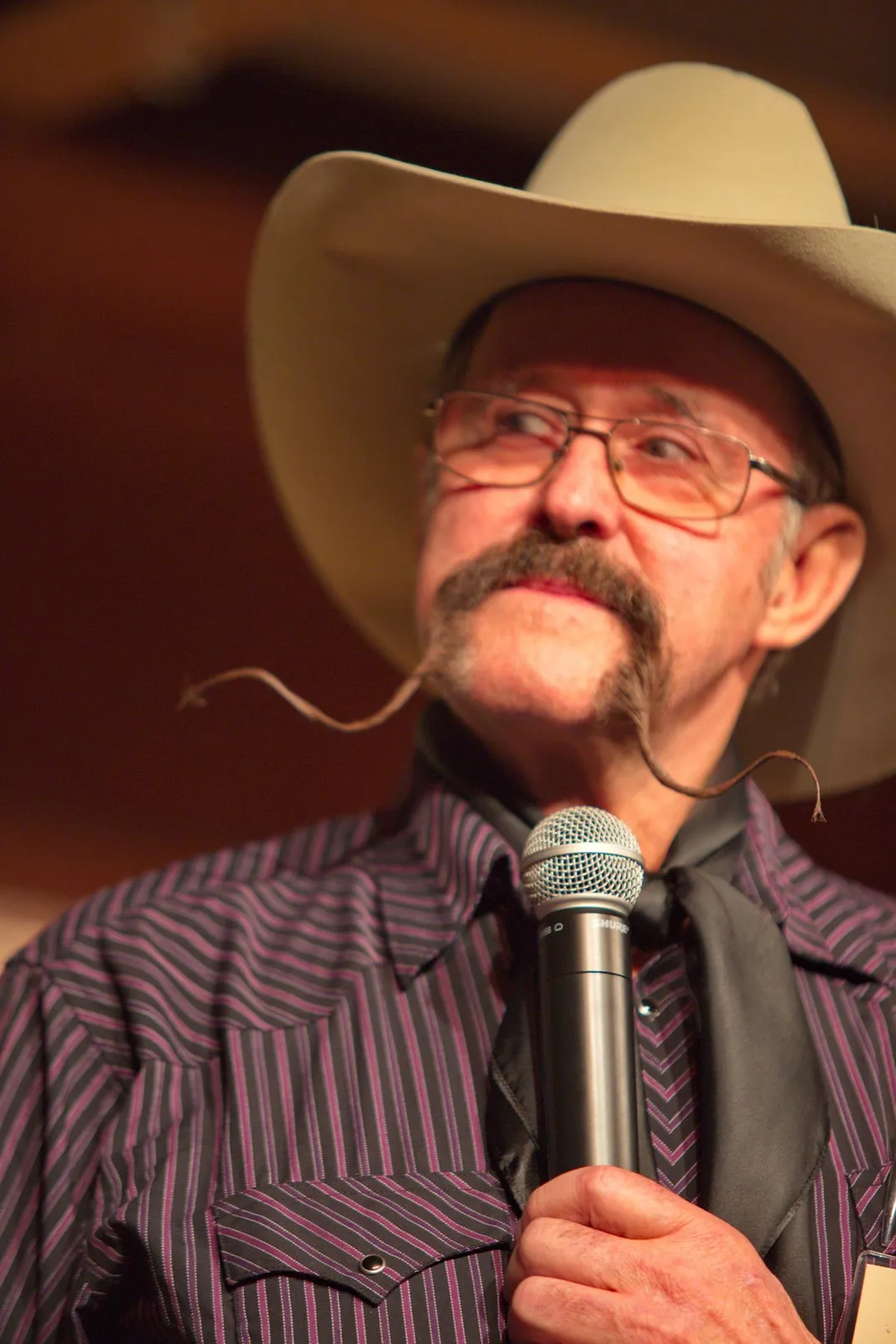


/https://tf-cmsv2-smithsonianmag-media.s3.amazonaws.com/accounts/headshot/JenniferBillock.png)